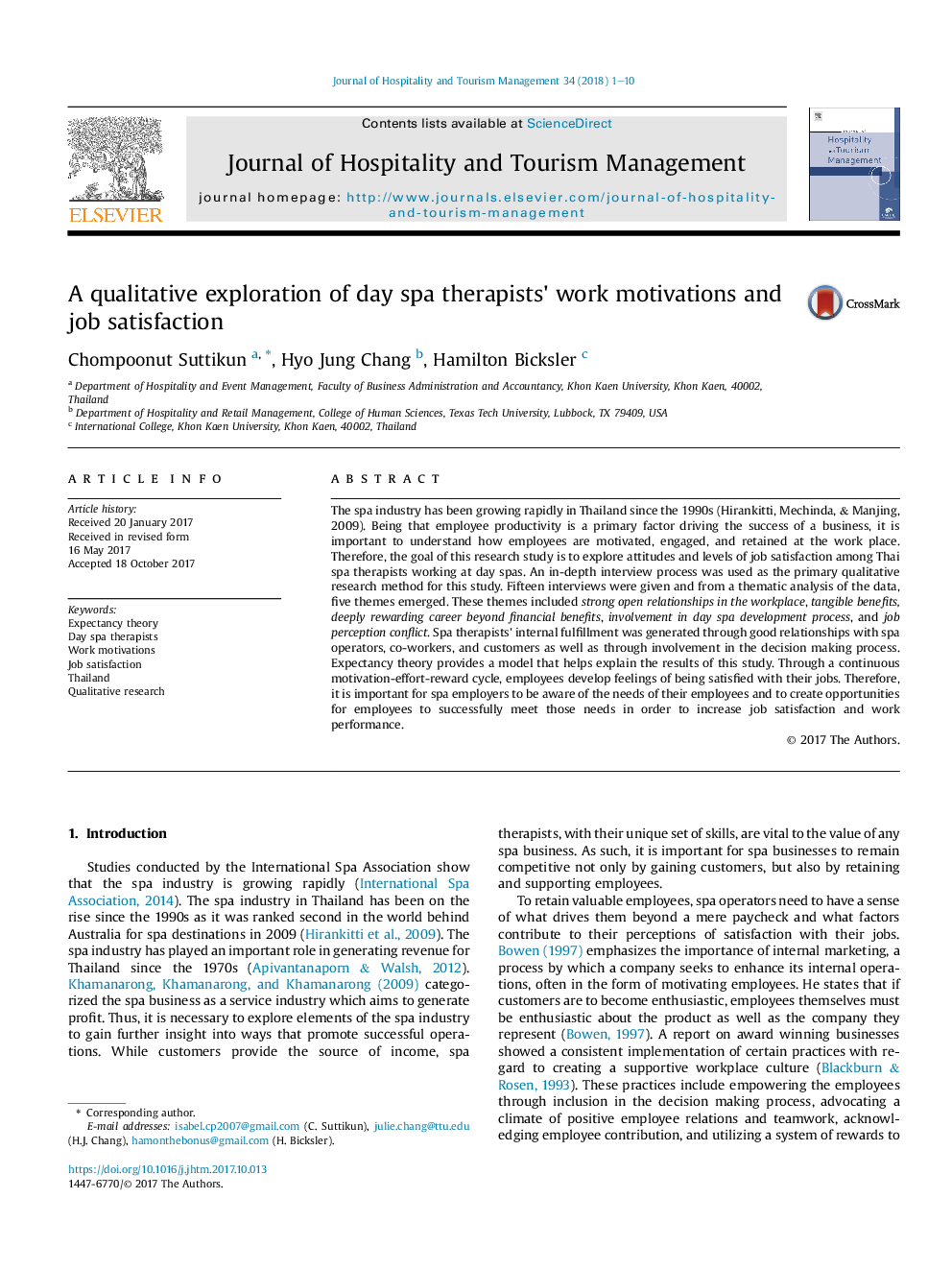| Article ID | Journal | Published Year | Pages | File Type |
|---|---|---|---|---|
| 7420298 | Journal of Hospitality and Tourism Management | 2018 | 10 Pages |
Abstract
The spa industry has been growing rapidly in Thailand since the 1990s (Hirankitti, Mechinda, & Manjing, 2009). Being that employee productivity is a primary factor driving the success of a business, it is important to understand how employees are motivated, engaged, and retained at the work place. Therefore, the goal of this research study is to explore attitudes and levels of job satisfaction among Thai spa therapists working at day spas. An in-depth interview process was used as the primary qualitative research method for this study. Fifteen interviews were given and from a thematic analysis of the data, five themes emerged. These themes included strong open relationships in the workplace, tangible benefits, deeply rewarding career beyond financial benefits, involvement in day spa development process, and job perception conflict. Spa therapists' internal fulfillment was generated through good relationships with spa operators, co-workers, and customers as well as through involvement in the decision making process. Expectancy theory provides a model that helps explain the results of this study. Through a continuous motivation-effort-reward cycle, employees develop feelings of being satisfied with their jobs. Therefore, it is important for spa employers to be aware of the needs of their employees and to create opportunities for employees to successfully meet those needs in order to increase job satisfaction and work performance.
Related Topics
Social Sciences and Humanities
Business, Management and Accounting
Tourism, Leisure and Hospitality Management
Authors
Chompoonut Suttikun, Hyo Jung Chang, Hamilton Bicksler,
